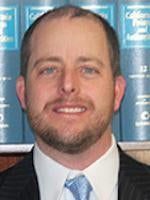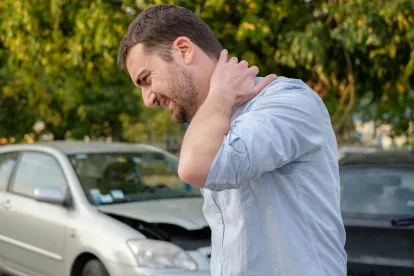TMJ injuries after a car accident is something I’ve seen many times over the last 20 years. TMJ is a potentially debilitating condition that may be caused by multiple things including automobile accidents. The condition may result in chronic pain in the face, jaw, neck and shoulders. People who suffer from it may also have chronic headaches and earaches, and they may suffer from hearing loss. It is important for people to find out if they have TMJ when they experience the symptoms of it. Failing to properly treat the disorder may lead to additional long-term problems.
What is TMJ?
TMJ involves an injury to the temporomandibular joints, which are located where the jaw is attached to the skull. These joints are located on both sides of the head and are necessary to help people to talk, chew and yawn. When people suffer injuries to these joints, it can impact their entire faces because the joints work together with the muscles and ligaments. This may lead to chronic facial pain, joint pain, earaches and headaches. While the pain may be temporary in some people, it can last for years in others.
How can trauma from an auto accident cause TMJ?
One of the most common causes of TMJ is a motor vehicle accident. TMJ often results from whiplash injuries in rear-end collisions. When a vehicle is struck from the rear, the force of the collision may cause an occupant’s head to fling forward and then violently backward as the forces subside. When this happens, the forces may push the jaw open and cause added pressure to the joints on either side of the jaw. This extra pressure may cause TMJ in addition to whiplash injuries. Some people may also suffer from TMJ when they strike their jaws on the dashboard or steering wheel in accidents, and airbag deployment may also cause the type of force that can result in TMJ injuries in automobile accidents.
What types of symptoms are common signs of TMJ?
There are multiple symptoms of TMJ that people should be aware of, and if they experience them, they should see their doctors. TMJ may cause any of the following:
-
Inability to open the mouth widely or pain when doing so
-
Pain in the shoulders, neck or face when speaking, chewing or opening the mouth
-
Difficulty with chewing or biting
-
Popping or grating noises in the jaw
-
Hearing loss, earaches or dizziness
-
Facial swelling along the side of the face
-
Jaw that locks
Following an automotive accident, some people may not initially notice the symptoms of TMJ. It is possible that the pain that they experience in their necks and shoulders may be attributed to the whiplash, leaving people unaware that they also suffered TMJ injuries until after their whiplash injuries begin to subside. If people are diagnosed with whiplash, they should ask their doctors to also check to see if they suffered from TMJ in their accidents.
Who can diagnose TMJ?
TMJ can be diagnosed by medical doctors and dentists. Ear, nose and throat specialists may also need to be consulted in order to confirm the diagnoses of TMJ. Many people start by seeing their dentists because of their jaw pain. The dentists may check for limited ranges of motion, joint pain and misalignment. They may also refer their patients to their physicians for further testing. Tests that may be performed include MRIs, x-rays, physical examinations and others.
What are the treatments for TMJ?
There are a variety of different treatments that doctors may recommend depending on the severity of the injury. People may undergo transcutaneous electrical nerve stimulation, the use of mouthguards, orthodontic work, massages of the jaw and face, applications of heat and ice and stress management techniques. They may also be prescribed non-steroidal anti-inflammatory medications. Surgery may be recommended as a last resort when other treatments have been ineffective.



 />i
/>i
